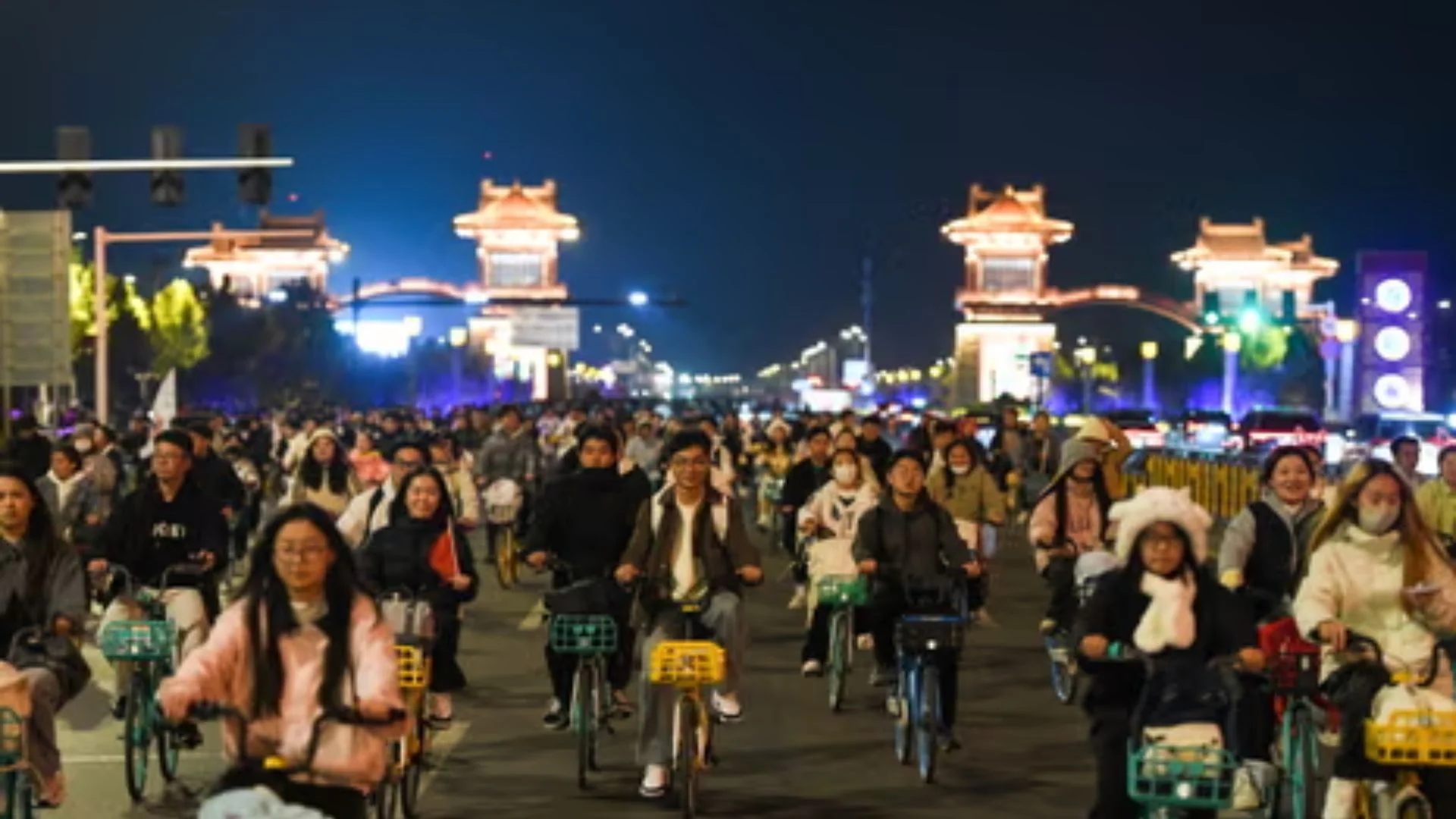
A night-time cycling trend that began as a small, adventurous ride for a few Chinese students quickly spiraled out of control, attracting up to 100,000 participants and overwhelming the ancient city of Kaifeng. The trend, which started in June when four students from Zhengzhou decided to cycle 50km for Kaifeng’s famous soup dumplings, “guan tang bao,” grew rapidly in popularity after the journey went viral on social media. Students from across Henan province embraced the idea, taking public bikes for the long ride to the city, creating an influx of young people keen to experience the adventure and the city’s culinary delights.
【鄭州、開封出現年輕人「夜騎」運動】
【當局恐慌急全面禁止】
中國全國多地出現大學生「夜騎」熱潮,河南省鄭州和開封市,11月8日晚有超過20萬年輕人踩著單車湧到市中心,單車群佔滿數十公里街道。https://t.co/xGeys6qikb pic.twitter.com/tF685d963l— RFA 自由亞洲粵語 (@RfaCantonese) November 10, 2024
On Friday, the number of cyclists swelled to between 100,000 and 200,000, jamming major roads and causing chaos. Kaifeng’s small size struggled to accommodate the huge crowd, with restaurants, hotels, and public spaces packed beyond capacity. Video footage showed thousands of cyclists clogging the Zhengkai expressway, prompting police to use loudspeakers to urge students to leave, either by bike or on a free bus service. Authorities swiftly introduced temporary road closures and cycling restrictions for the weekend, while bike-sharing apps imposed lockdowns on bikes taken outside designated zones.
Initially celebrated for promoting tourism and a sense of youthful energy, the trend quickly became a point of contention. Complaints flooded in from Kaifeng residents, who reported a mess of discarded bikes and trash left behind by the crowds. Online, many students expressed regret for the disruption but defended the movement as an innocent display of youthfulness and adventure. The incident has sparked a broader debate about whether the media and authorities should have anticipated the event’s massive scale, providing more support and infrastructure to handle such a surge in visitors.















